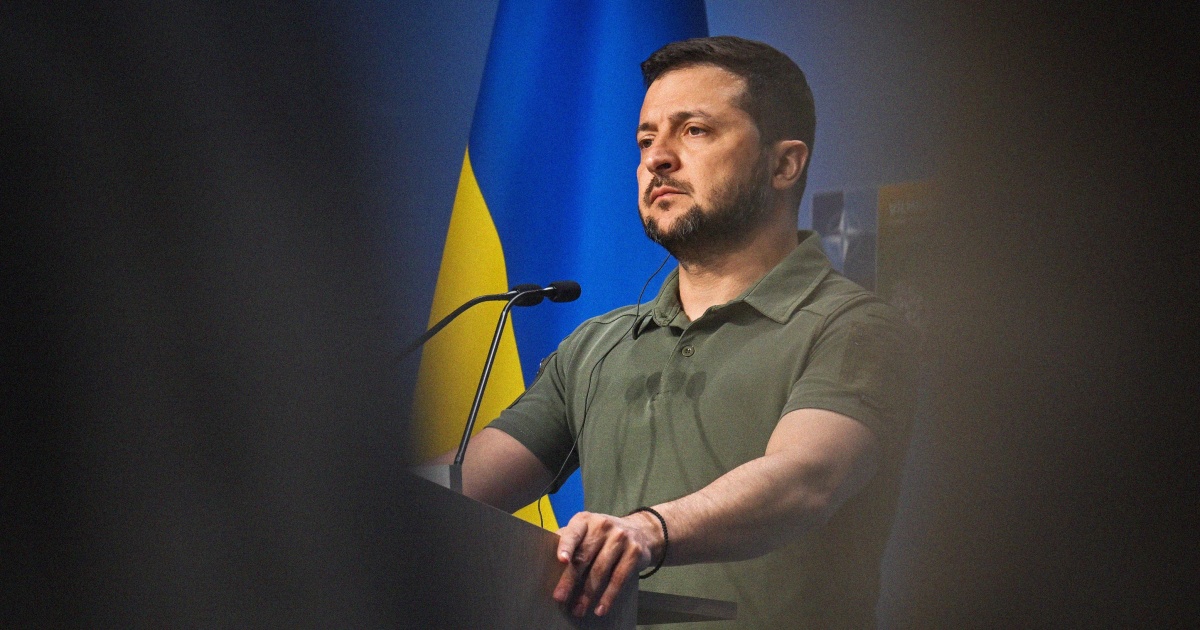
The world has caught a glimpse of the inner workings of Ukraine’s dealings with its Western backers, and like many a marriage, it’s complicated.
During a high-profile, two-day NATO summit in Lithuania, intense wrangling that diplomats generally prefer to keep behind closed doors instead spilled into public view, revealing a relationship between Kyiv and Western capitals that can be high-strung, emotionally fraught and occasionally messy.
Heading into the summit’s final day, the United States and its allies were mired in disagreement that highlighted fundamental divisions between the war-torn country and its Western partners. Russia, meanwhile, gloated from the sidelines.
By the end of the summit, Ukraine and its backers had done their best to paper over any discord, with President Joe Biden praising Ukraine’s “astounding” courage and Ukraine’s leader effusively thanking the U.S. for its support. Ukraine walked away from the summit with tangible wins in hand, including unprecedented long-term security commitments from the world’s leading democracies and a simplified path to future NATO admission.
Still, the brief eruption of frustration among allies that have sought to publicly portray themselves in lockstep was a window into the difficult task of holding the alliance together as the war in Ukraine surpasses the 500-day mark.
To hear NATO’s version of events, the summit in Lithuania displayed the alliance’s “unwavering solidarity” with Ukraine “in the heroic defence” of its people and Western values, according to its communique published Tuesday. It said NATO would extend an invite for Ukraine to join the 31-member defense organization, but only when all allies agreed and certain conditions were met.
Ukraine has shown a more pessimistic take on what has gone down — initially at least. It believes that by holding Europe’s eastern flank against Russia it has already done more than enough to be offered a concrete entry plan.
“When will the conditions be met? What are those conditions? Who has to formulate them?” Ukrainian Foreign Minister Dmytro Kuleba said in an interview with Radio Free Europe on Wednesday. He was echoing his president, Volodymyr Zelenskyy, who arrived in the Lithuanian capital, Vilnius, on Tuesday while fuming about NATO’s “strange wording about ‘conditions.’”
Zelenskyy went on to deliver a barnstorming speech in downtown Vilnius on Tuesday, giving a clear warning that he wanted to see “a NATO that does not hesitate, that does not waste time and does not look over their backs at any aggressor” — referring to Western fears about escalating a war with nuclear-armed Russia.
Zelenskyy’s tone had changed Wednesday afternoon when he thanked Biden, saying that “you spend this money for our lives.” He also praised the U.S. for sending shipments of controversial cluster munitions.
During a warm public meeting with Zelenskyy, Biden acknowledged “frustration I can only imagine,” more than 15 years after NATO promised Kyiv a path to future membership.
But feelings ran deep among Ukrainians. Daria Kaleniuk, the executive director of the Anti-Corruption Action Center, a Kyiv-based nongovernmental organization that monitors graft in Ukraine, said the president’s strident tone merely reflected opinion back home. “Our allies should not be frustrated with his words because this is what Ukrainians on the ground feel,” Kaleniuk told NBC News.
The NATO summit comes at a crucial time for Ukraine, whose counteroffensive is going slower than expected, even while Russian President Vladimir Putin grapples with the fallout of a brief rebellion by Russia’s own mercenary forces.
NATO, or the North Atlantic Treaty Organization, was formed after World War II and is based on the principle that its members would all defend an ally under attack. NATO opened the door to Ukraine membership in 2008, but it never happened. Four years later, Russia annexed Crimea before launching a full-scale invasion last year.
Although his country has been given tens of billions of dollars in Western military aid, Zelenskyy says NATO membership is crucial not just to the defense of his land but to the protection of its European neighbors. But the U.S. and Germany, wary of risking a wider war with the Kremlin, have made it clear that a concrete timeline for membership is premature.






